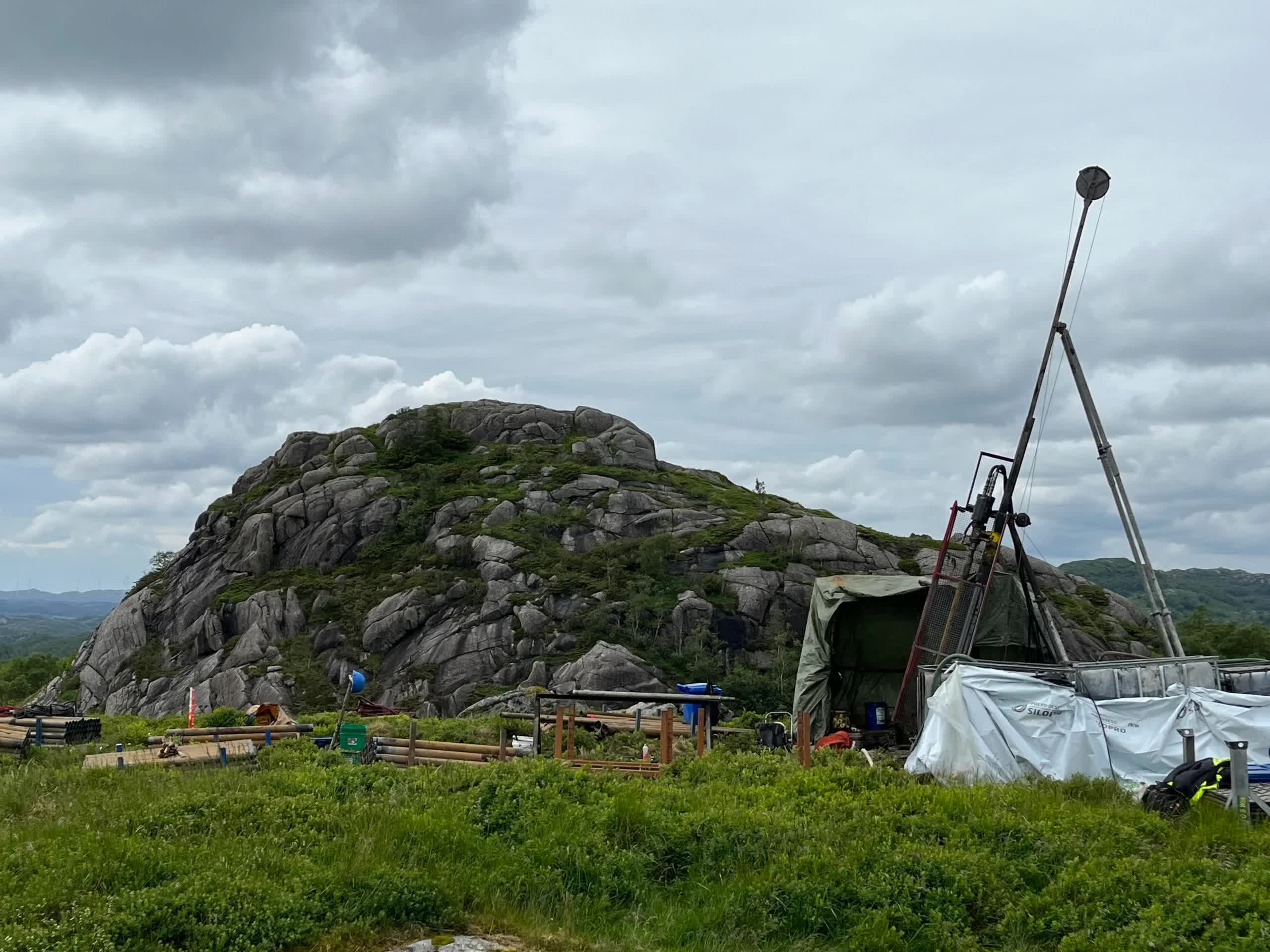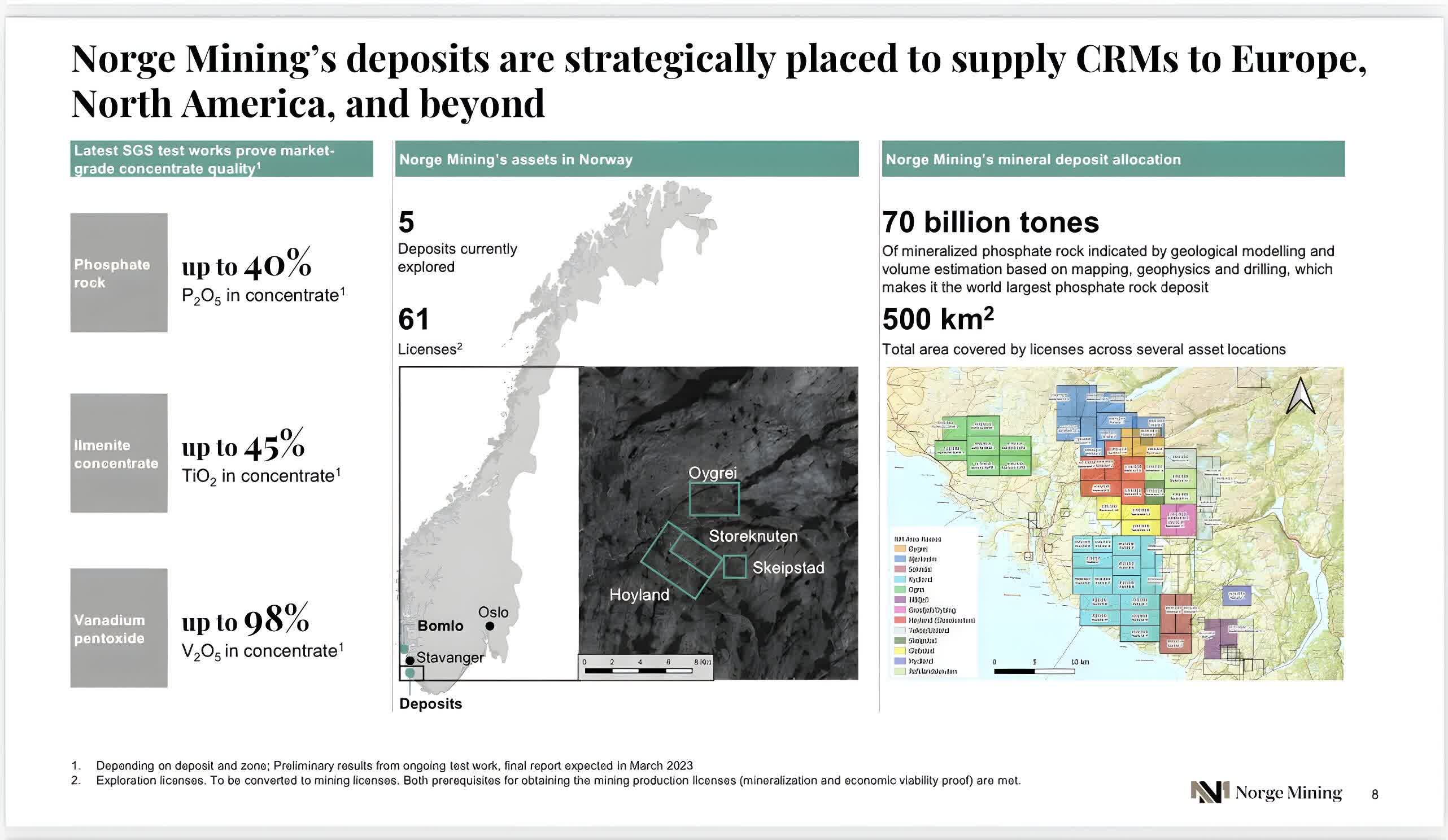What just happened? Good news for fertilizer, solar panel, and electric vehicle battery companies: a massive underground deposit of high-grade phosphate rock has been discovered in Norway, containing enough minerals to meet global demand for those products for the next 50 years.
Norwegian mining company Norge Mining said the 70 billion tonnes of phosphate rock was uncovered in the southwest of Norway, where it sits alongside other minerals such as titanium and vanadium that are used in the aerospace and defense industries. Update (July 7): Norge Mining in an email let us know they have revised their estimate for how long the deposit allows for a supply of phosphate rock from 100 years to 50 years.
Phosphate rock is used in the production of phosphorus, an essential component in the fertilizer industry – 90% of the world's mined phosphate rock goes toward agriculture. It's also used in the production of lithium-iron-phosphate batteries for electric vehicles, solar panels, and in small quantities in semiconductors and chips. All these products have been designated by the European Commission as "of strategic importance" in the production of key technologies for the green and digital transition.
The 70 billion tonne phosphate deposit is just under the proven world reserves of 71 billion tonnes, writes Euractiv.
A report from The Hague Centre for Strategic Studies states that the European Union is almost entirely dependent on imports of phosphate rock from other countries around the world and that the bloc should be concerned about shortages.
A Nature article warns that Russia's invasion of Ukraine and the resulting economic sanctions could result in a disruption to the supply of phosphorus, further illustrating the importance of the new discovery. With the global economy using up to 50 million tonnes of phosphorus annually, it's prompted concerns about shortages of this important mineral as reserves are slowly depleting and held by just 4 or 5 big suppliers.
The Nature article also writes that phosphorus producing countries like China and the USA may seek to protect their domestic supplies by restricting exports, and that further disruptions to secure access to phosphorus are likely to be geopolitical and economic in nature, long before global reserves are exhausted.
Phosphorous refining is a highly carbon-intensive process, which is why most of the industry is located in China, Vietnam, and Kazakhstan. But Norway will apply carbon capture and storage technology to the process to make it greener. Norway's minister of trade and industry, Jan Christian Vestre, said it was the country's "obligation" to develop "the world's most sustainable mineral industry."
The ore body runs 4,500 meters (2.7 miles) in the ground. It's impossible to drill at these depths, so geologists evaluated only a third of the volume, reaching down 1,500 meters from the surface, where at least 70 billion tonnes of mineralized phosphate rock is located.

